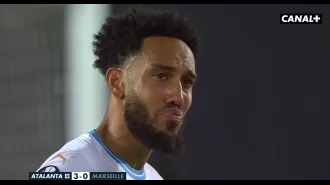Mother's IVF halted by Alabama ruling, frozen embryos now legally children in the eyes of the law.
A mother in Birmingham, Alabama, had her plans for expanding her family through IVF stopped due to a Supreme Court ruling that considers frozen embryos as children.
May 12th 2024.

Latorya Beasley, a mother from Birmingham, Alabama, had been eagerly expanding her family through IVF (In Vitro Fertilization) but her plans were abruptly halted due to a controversial ruling by the state's Supreme Court. This ruling stated that frozen embryos are now legally recognized as children in Alabama, leaving Beasley and many others in a state of disappointment and uncertainty.
In an interview with People, Beasley bravely opened up about her struggles with infertility and how it led her to undergo IVF in 2020. For those unfamiliar with the process, the Mayo Clinic describes IVF as a medical procedure where mature eggs are fertilized by sperm in a lab and then transferred into the uterus. This typically takes about 2 to 3 weeks to complete.
After a successful transfer and the birth of their first daughter in 2023, Beasley and her husband wasted no time in planning for another round of IVF. They had always dreamed of having children close in age, so Beasley immediately made another appointment with her doctor to discuss their options.
However, things took an unexpected turn when Beasley started hearing about the chatter surrounding the ruling in February of 2024. At first, she didn't think much of it, but as the date for her transfer approached, she and her husband began to worry about the potential impact on their plans. Unfortunately, their fears became a reality on February 16th when the Alabama Supreme Court officially declared that frozen embryos are legally considered children. This decision had a ripple effect, causing many healthcare providers to refuse any treatments that could potentially lead to legal consequences.
As a result, Beasley's clinic was forced to close and her scheduled transfer was canceled, leaving her feeling devastated. "We were right there," she shared with People. "I was literally just a couple of days out from the transfer." It was a rollercoaster of emotions for Beasley, as she went from feeling sad to angry about the situation. She explained that this is often how it goes with infertility, where one day you're hopeful and the next you're hit with bad news. But the ruling also opened her eyes to the state of women's reproductive rights and she couldn't help but wonder what could be next.
Beasley's anger turned into a determination to advocate for herself and others in similar situations. "You start to wonder, well, what could be next?" she said. "I think that was just what really ignited the anger, like how did we get here? How can we allow this to happen?" She is committed to sharing her story and speaking out against this ruling, even if it means being uncomfortable. Beasley believes that it's important for people to exercise their right to vote and protect women's fundamental rights.
In the end, Beasley hopes that her story will inspire others to take action and bring attention to this issue. She said, "I just hope that they'll hear my story and pay attention. I hope that they'll get out and exercise their rights to vote because you have to protect just women's fundamental rights." Beasley's determination and strength in the face of adversity is truly inspiring.
In an interview with People, Beasley bravely opened up about her struggles with infertility and how it led her to undergo IVF in 2020. For those unfamiliar with the process, the Mayo Clinic describes IVF as a medical procedure where mature eggs are fertilized by sperm in a lab and then transferred into the uterus. This typically takes about 2 to 3 weeks to complete.
After a successful transfer and the birth of their first daughter in 2023, Beasley and her husband wasted no time in planning for another round of IVF. They had always dreamed of having children close in age, so Beasley immediately made another appointment with her doctor to discuss their options.
However, things took an unexpected turn when Beasley started hearing about the chatter surrounding the ruling in February of 2024. At first, she didn't think much of it, but as the date for her transfer approached, she and her husband began to worry about the potential impact on their plans. Unfortunately, their fears became a reality on February 16th when the Alabama Supreme Court officially declared that frozen embryos are legally considered children. This decision had a ripple effect, causing many healthcare providers to refuse any treatments that could potentially lead to legal consequences.
As a result, Beasley's clinic was forced to close and her scheduled transfer was canceled, leaving her feeling devastated. "We were right there," she shared with People. "I was literally just a couple of days out from the transfer." It was a rollercoaster of emotions for Beasley, as she went from feeling sad to angry about the situation. She explained that this is often how it goes with infertility, where one day you're hopeful and the next you're hit with bad news. But the ruling also opened her eyes to the state of women's reproductive rights and she couldn't help but wonder what could be next.
Beasley's anger turned into a determination to advocate for herself and others in similar situations. "You start to wonder, well, what could be next?" she said. "I think that was just what really ignited the anger, like how did we get here? How can we allow this to happen?" She is committed to sharing her story and speaking out against this ruling, even if it means being uncomfortable. Beasley believes that it's important for people to exercise their right to vote and protect women's fundamental rights.
In the end, Beasley hopes that her story will inspire others to take action and bring attention to this issue. She said, "I just hope that they'll hear my story and pay attention. I hope that they'll get out and exercise their rights to vote because you have to protect just women's fundamental rights." Beasley's determination and strength in the face of adversity is truly inspiring.
[This article has been trending online recently and has been generated with AI. Your feed is customized.]
[Generative AI is experimental.]
0
0
Submit Comment





